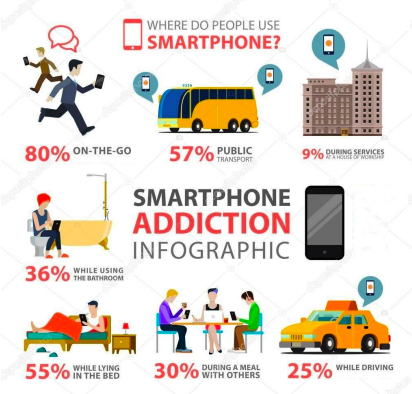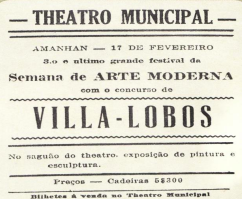Questões de Vestibular UEG 2018 para Vestibular - Língua Inglesa (em Rede)
Foram encontradas 40 questões
Leia o texto a seguir para responder à questão.
Predictions for the future of 'smart' education
Posted by Charley Rogers - January 22, 2018
A wave of new technology has been introduced into schools up and down the country changing the way
teachers deliver lessons and how students learn.
A research by Randstad Education found schools and colleges have adopted the latest tech to improve teaching and make lessons more interactive and engaging. Some of the innovations already in use include ‘gamifying’ lessons by incorporating game-like rules and tasks to increase motivation. For example, Shireland Academy in the West Midlands included Minecraft on its curriculum.
Education, the research found, will become more project-based and include more interactive content to keep up with students’ changing attitudes towards traditional media. Classrooms, it is predicted, will join the Internet of Things – a network of devices like smartwatches that connect and share data with other items and systems – and create ‘smart schools’ where the teachers, students and devices become more connected.
Pressure on teachers – 75% find their workload unmanageable – as well as rising student numbers means technology will play a larger role performing tasks to save time. Teachers are also reaping the rewards as lessons and assessments move out of the classroom and onto platforms that make it easier for them to chart progress and achieve a better work-life balance. Education experts have highlighted the importance of new techniques that help teachers do their jobs.
However, while tech will become more commonplace in the classroom, it is expected to compliment teachers and not replace them. It´s important to understand that teaching tools have come a long way since the days when teachers used to write on chalkboards and present using an overhead projector.
The research says that students today benefit from some of the most exciting technology available to schools, but it’s not just the pupils who benefit from these innovations through invigorating lessons and virtual learning. Teachers are also reaping the rewards as lessons and assessments move out of the classroom and onto platforms that make it easier for them to chart progress and achieve a better work-life balance.
Technology has arrived and the teachers and classrooms of tomorrow are here today.
Disponível em: <https://edtechnology.co.uk/Article/predictions-for-the-future-of-education>. Acesso em: 19 set. 2018. (Adaptado).
Leia o texto a seguir para responder à questão.
Predictions for the future of 'smart' education
Posted by Charley Rogers - January 22, 2018
A wave of new technology has been introduced into schools up and down the country changing the way
teachers deliver lessons and how students learn.
A research by Randstad Education found schools and colleges have adopted the latest tech to improve teaching and make lessons more interactive and engaging. Some of the innovations already in use include ‘gamifying’ lessons by incorporating game-like rules and tasks to increase motivation. For example, Shireland Academy in the West Midlands included Minecraft on its curriculum.
Education, the research found, will become more project-based and include more interactive content to keep up with students’ changing attitudes towards traditional media. Classrooms, it is predicted, will join the Internet of Things – a network of devices like smartwatches that connect and share data with other items and systems – and create ‘smart schools’ where the teachers, students and devices become more connected.
Pressure on teachers – 75% find their workload unmanageable – as well as rising student numbers means technology will play a larger role performing tasks to save time. Teachers are also reaping the rewards as lessons and assessments move out of the classroom and onto platforms that make it easier for them to chart progress and achieve a better work-life balance. Education experts have highlighted the importance of new techniques that help teachers do their jobs.
However, while tech will become more commonplace in the classroom, it is expected to compliment teachers and not replace them. It´s important to understand that teaching tools have come a long way since the days when teachers used to write on chalkboards and present using an overhead projector.
The research says that students today benefit from some of the most exciting technology available to schools, but it’s not just the pupils who benefit from these innovations through invigorating lessons and virtual learning. Teachers are also reaping the rewards as lessons and assessments move out of the classroom and onto platforms that make it easier for them to chart progress and achieve a better work-life balance.
Technology has arrived and the teachers and classrooms of tomorrow are here today.
Disponível em: <https://edtechnology.co.uk/Article/predictions-for-the-future-of-education>. Acesso em: 19 set. 2018. (Adaptado).
Leia o texto a seguir para responder à questão.
Predictions for the future of 'smart' education
Posted by Charley Rogers - January 22, 2018
A wave of new technology has been introduced into schools up and down the country changing the way
teachers deliver lessons and how students learn.
A research by Randstad Education found schools and colleges have adopted the latest tech to improve teaching and make lessons more interactive and engaging. Some of the innovations already in use include ‘gamifying’ lessons by incorporating game-like rules and tasks to increase motivation. For example, Shireland Academy in the West Midlands included Minecraft on its curriculum.
Education, the research found, will become more project-based and include more interactive content to keep up with students’ changing attitudes towards traditional media. Classrooms, it is predicted, will join the Internet of Things – a network of devices like smartwatches that connect and share data with other items and systems – and create ‘smart schools’ where the teachers, students and devices become more connected.
Pressure on teachers – 75% find their workload unmanageable – as well as rising student numbers means technology will play a larger role performing tasks to save time. Teachers are also reaping the rewards as lessons and assessments move out of the classroom and onto platforms that make it easier for them to chart progress and achieve a better work-life balance. Education experts have highlighted the importance of new techniques that help teachers do their jobs.
However, while tech will become more commonplace in the classroom, it is expected to compliment teachers and not replace them. It´s important to understand that teaching tools have come a long way since the days when teachers used to write on chalkboards and present using an overhead projector.
The research says that students today benefit from some of the most exciting technology available to schools, but it’s not just the pupils who benefit from these innovations through invigorating lessons and virtual learning. Teachers are also reaping the rewards as lessons and assessments move out of the classroom and onto platforms that make it easier for them to chart progress and achieve a better work-life balance.
Technology has arrived and the teachers and classrooms of tomorrow are here today.
Disponível em: <https://edtechnology.co.uk/Article/predictions-for-the-future-of-education>. Acesso em: 19 set. 2018. (Adaptado).
Observe o infográfico a seguir para responder à questão.
 .
.
Disponível em: <https://fr.depositphotos.com/90651634/stock-illustration-smartphone-addiction-infographics-concept.html>. Acesso em: 21 set. 2018.
According to the information expressed in the image and the data, smartphones are

Disponível em: <https://ifhistoria.wordpress.com/2014/05/18/a-semana-de-arte-moderna/>. Acesso em: 01 out. 2018.
Em termos de linguagem, verifica-se que há no anúncio a presença de formas linguísticas que comprovam que